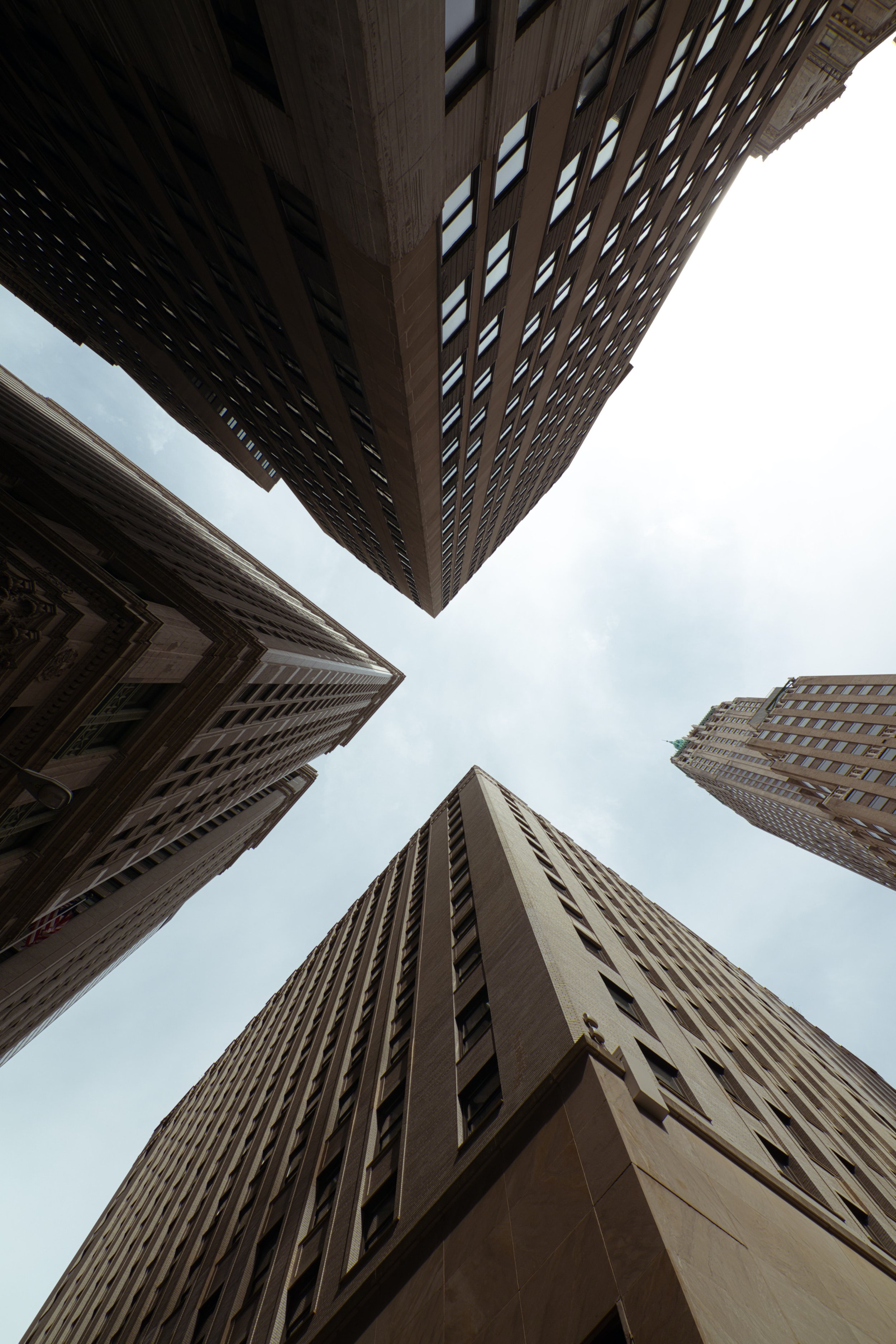New York Was The City Of My Dreams—Until I Moved There
I left New York City for the shore on the first warm day.
The train ride north from Penn Station hurls along the coast as if it’s perpetually trying to beat the sunset. Even in the depths of evening, the train moves with a certain hope that it can outpace the day, that it can catch the sun before it dips below the horizon. It is this sense that lends itself to the feeling of youth and the childlike inclination to believe some things last forever. Or perhaps it is just that moving along the coast makes me nostalgic.
Growing up, I spent my summers on Cape Cod visiting my grandparents. It’s a place I associate with a certain ease which I have not found anywhere in New York, a certain happiness which I have not found anywhere in adulthood, and I welcomed the opportunity to try to reclaim these things by revisiting the sanded ground from which they sprung on that warm day in spring.
“I am not yet aware of all the ways my body and the person it contains do not serve me.”
In childhood, I am floating in the ocean’s shallows on the back of an inflated alligator, wearing a light blue bathing suit patterned with bright red cherries. My hair is short and curly and gleams with red and brown hues in the sun. Hugging my knees to my chest, I avoid the seaweed drifting beneath me as my grandfather pushes me along the surface of the sea. I am aware of myself only in relation to the water, wanting to be near it, on top of it, without letting it wash over me. I am not yet aware of all the ways my body and the person it contains do not serve me. I do not wish to be anyone else, I just wish not to touch the seaweed that floats in the shallows, to dip beneath the surface of the water.
Growing up in New England, time passed slowly in the direction of summer. Days in winter end early and abruptly, leaving themselves behind at three or four in the afternoon as if to move the season along as swiftly and efficiently as possible. Nonetheless, childhood in New England felt mostly like waiting for the arrival of a season that may or may not come, like waiting on the answer to a rhetorical question.
“In seasons of waiting, I dreamed of New York.”
In seasons of waiting, I dreamed of New York. I had been planning my move to the city for the better part of a decade, ever since I first visited around my sixth birthday. In those years, I had conjured up an idea of New York, and the person I would be there, like one envisions heaven and romanticizes life after death. New York was my religion and I emptied myself out for the blind faith and pervasive cliché that I would “find myself” somewhere among its dirty, skyscraper-lined streets.
I moved to Manhattan’s Lower East Side on the cusp of winter in the months after graduating from college. Arriving on Orchard Street in the passenger seat of my father’s car, wearing baggy jeans and an old sweater that belonged to my grandmother, one covered in holes from years of wash and wear, I began moving into the city of my dreams. Whatever they say is the biggest day of your life pales in comparison to the day you move into your imagination, step into the person you think will be, and proceed forward.
“In the New York I imagined, I would try on versions of myself like one tries on dresses to prepare for their wedding.”
In the New York I imagined, I would try on versions of myself like one tries on dresses to prepare for their wedding. In my dreams, my bones protrude from my skin, my body is covered in a series of small, thin-lined tattoos, my hair falls effortlessly without frizz, freckles cover the bridge of my nose. In one vision, I am in love; in another, I am a writer; in another, I have stopped drinking. In other visions, I have a group of friends and an apartment filled with eclectic furniture I thrifted somewhere in Brooklyn. Or, alternatively, I haven't talked to anyone in weeks and bask in the comfort of my own company. In some I am tan and the background isn’t New York at all but some unidentified town on the coast of California and I can hear the sound of the ocean in the distance.
When I opened the door to my apartment for the first time, a small three-bedroom in a pre-war walk-up building, I expected to find one of these versions waiting for me. But our apartment was empty, and I began filling it with an amalgamation of things I’ve held onto from all the places I’ve called home: the chest from our attic that belonged to my mother, the rug from my college apartment, white ribbed dishes from my grandparents’ home on Cape Cod.
When I arrived at the coast shortly before six on that warm day in spring, the sun was inching toward the horizon slowly and subtly, as if to not draw attention to itself. It was then that I realized the source of my nostalgia. I had expected to find her there, that version I’d left floating in the shallows, just like I’d expected to find her in New York, the version of myself I’d imagined. But scanning the vacant shoreline, I knew she’d been pulled out to sea, caught in the undertows of change.
“I am not the person I once was, nor am I the person that I thought I would be, and I will not find them anywhere but in my mind.”
I am not the person I once was, nor am I the person that I thought I would be, and I will not find them anywhere but in my mind. In The Imaginary, Jean-Paul Sartre said, “We can conclude that the real is never beautiful. Beauty is a value applicable only to the imaginary and which means the negation of the world in its essential structure.” At first I resented New York for not being able to give me the version of myself I wanted to be. I thought about where else I could move, looked for jobs in Los Angeles and Paris and the coast of Maine, dreamed up selves that existed in these places. Then I turned my anger to the circumstances of reality, the bounds of skin and time, which tied me to myself.
“I think this point, of either acceptance or concession, is the point where innocence ends.”
But increasingly, I’m coming to terms with the reality that things lose their beauty, either real or imagined, when we view them too closely. I’ve lingered long enough in front of the mirror that hangs by the front door of my city apartment, applying makeup, trying on outfits, looking for bone, looking for myself, to know that this is all I get. I think this point, of either acceptance or concession, is the point where innocence ends. The point at which we view our ideas of how things are supposed to be and how things might be from too close, revealing some truth we couldn’t otherwise see. It’s the distance of disillusionment, and it’s a point from which we can’t turn back.
Sara Keene is a writer and publicist living on the Lower East Side. She came to New York in fall by way Charlottesville, graduating from the University of Virginia with a Bachelors in political science and English literature. Originally from outside of Boston, her writing centers around the changing of seasons, growing up, and holding out hope we never have to.





